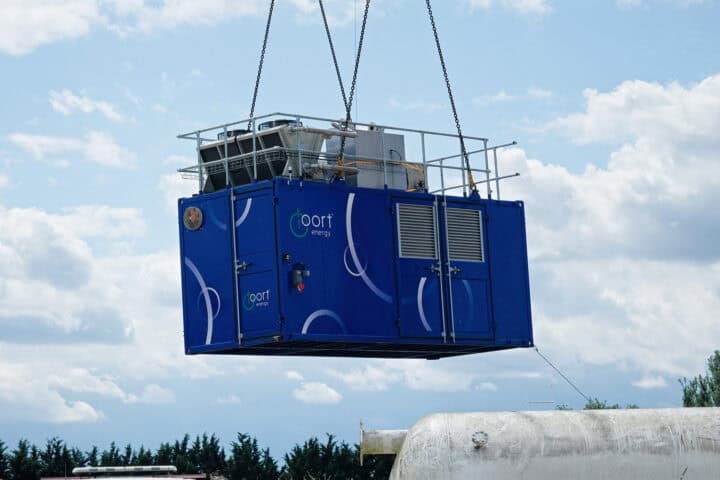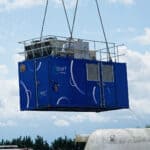The Federal Aviation Administration (FAA) has allocated $291 million in funding, primarily through the Inflation Reduction Act (IRA), to accelerate the development of Sustainable Aviation Fuel technologies and green aviation practices. Aimed at achieving net-zero greenhouse gas emissions by 2050, this funding will significantly boost the production and deployment of green aviation fuel and low-emission aviation technologies. The FAST grants will support 36 projects, including Gevo, Inc.’s alcohol-to-jet fuel facility in Minnesota and a study on SAF supply chains at Hartsfield-Jackson Atlanta International Airport. The transition to renewable jet fuel offers substantial environmental benefits by dramatically lowering carbon emissions compared to standard jet fuel. By utilizing feedstocks such as agricultural waste and algae, green fuel promotes energy independence and security for the aviation sector. Moreover, these investments encourage economic growth, creating jobs and fostering innovation in green energy. The FAA’s efforts reflect a major step toward sustainable aviation, positioning the U.S. as a global leader in decarbonizing the air transportation industry while advancing toward its net-zero emissions goal by 2050.

The Federal Aviation Administration ( FAA ) has announced $291 million in funding for the development of clean aviation fuel technologies as a significant step toward reducing the impact of the aviation industry.
These funds, which are provided by the Inflation Reduction Act ( IRA ), aim to promote the adoption and development of sustainable jet fuel and other low-emission aviation technologies.
By 2050, the nation’s aviation climate action plan has stated as its top goal that there will be net-zero greenhouse gas emissions from aviation.
A commitment to a greener aviation industry
” The Biden-Harris Administration is committed to enhancing the safety, sustainability and efficiency of our national air transportation system—and reaching our mid-century target of net-zero emissions”, stated Secretary of Transportation Pete Buttigieg.
These grants will help put aviation on a decarbonization path while supporting local economic growth and ensuring the US retains its position as a world leader in aviation.
The FAA’s Fueling Aviation’s Sustainable Transition ( FAST ) grants are divided into two main categories.
The second category allocates $244.5m for 22 projects that focus on the production, transportation, blending, or storage of sustainable aviation fuel.
The next category awards $46.5m to 14 projects dedicated to developing, demonstrating, or applying low-emission aviation technologies.
Big investments in renewable jet fuel
The heart of this initiative is green aviation fuel. It is made from renewable resources, and as a result, it is tremendously lessening carbon pollution throughout its life cycle.
Notably, it can be safely used in existing aircraft and engines, making it a worthwhile short-term solution to the aviation industry’s carbon problem.
A $16.8 million grant to Gevo, Inc. is one of the significant projects that has received FAST grants. This funding will enable the conversion of a previously unfinished Luverne, Minnesota fuel facility into a totally integrated alcohol-to-jet production facility for sustainable aviation fuel.
One of the busiest airports in the world, Hartsfield-Jackson Atlanta International Airport, is the subject of a $240,000 grant to the City of Atlanta to study the provincial supply chains and infrastructure required for SAF deployment.
The advantages of using renewable jet fuel
The transition to green jet fuel has a number of advantages for both the environment and the economy. First and foremost, green jet fuel greatly reduces the carbon footprint of aviation.
Standard jet fuel accounts for a large portion of world carbon dioxide emissions, making up a significant portion of greenhouse gas emissions.
Green fuel, which is made from green feedstocks like agricultural waste, algae, and even municipal waste, has a significant impact on lifecycle carbon emissions compared to regular jet fuel.
Additionally, the use of sustainable aviation fuel supports energy security and independence. By reducing the use of fossil fuels, it encourages the diversification of aviation’s energy sources, making the sector more adaptable to price fluctuations and supply disruptions.
This is especially crucial for a sector that has historically been susceptible to volatility in the oil market.
Financially, alternative jet fuel development and deployment create employment and spur innovation in the US.
The FAST grants are promoting growth in a sector that is poised to grow exponentially as the demand for green energy solutions rises because they invest in production facilities and supply chains.

Accelerating towards net-zero emissions
The FAA’s plan to achieve net-zero emissions by 2050 is shaped by the FAST grants, which even act as a springboard for innovation and collaboration in the aviation sector.
Grant recipients range from well-known fuel producers and supply chain businesses to new businesses and academic institutions, all working together to push the boundaries of what is feasible in green aviation.
The projects are crucial in advancing our ecological and economic sustainability goals by facilitating the development and implementation of sustainable aviation fuels, according to Laurence Wildgoose, FAA Assistant Administrator for Policy, International Affairs, and Environment.
With these investments, the US is taking a leading role in the international effort to decarbonize aviation, helping to create the conditions for a more sustainable future for air travel.












